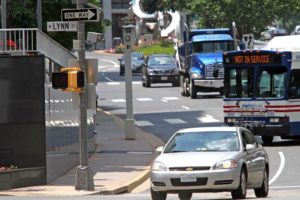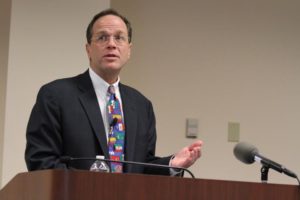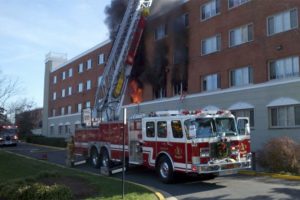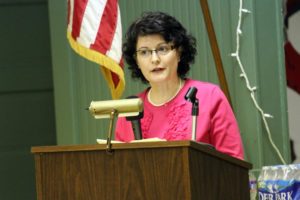 Arlington Public Schools Superintendent Dr. Patrick Murphy’s proposed FY 2013 budget includes an across-the-board increase in maximum class sizes and a small raise for all APS employees.
Arlington Public Schools Superintendent Dr. Patrick Murphy’s proposed FY 2013 budget includes an across-the-board increase in maximum class sizes and a small raise for all APS employees.
At $493.8 million, the proposed budget is a 3.9 percent increase over FY 2012. The increase reflects, among other things, a 2 percent increase in the APS salary scales — Dr. Murphy says the increase is a reflection of the “cost of competing” with other Northern Virginia school systems for quality teachers and staff — and 3.9 percent growth in student enrollment.
Student enrollment is projected to jump by 857 students, from 21,841 to 22,698. APS calculates that growing enrollment will cost $1.8 million for the purchase of 16 new relocatable classrooms and $2.2 million in additional staffing costs. Though the overall budget is flat in terms of per-student spending, the official “per pupil” cost — as calculated under a set formula that differs from just looking at the overall budget — will actually increase from $18,047 to $18,400.
Helping to offset otherwise higher costs of enrollment is Dr. Murphy’s proposal to increase the maximum allowable class size for all K-12 classes by one student. Though he admits that it’s “a tough decision” that is likely to be of concern to many parents, Dr. Murphy is quick to point out that the increase in the maximum class size will not automatically increase the size of every class. Instead, it will primarily affect classes that were already at the maximum.
Murphy also noted that the current proposal to transition middle schools to block scheduling is not “not designed at all” to impact class sizes.
In addition to the salary increase, the new budget factors in investments in professional learning for teachers, the purchase of new science textbooks, and the purchase of new classroom and enterprise technology. APS is also planning on spending more this year as a result of lost federal grants, the need for more reserve funds, and rising costs associated with paying off the debt incurred for recently-built schools.
Dr. Murphy listed a number of “unfunded instructional needs” that the budget does not address. Included in that list of unmet goals is an expansion of foreign language classes in elementary schools, an expansion of Virginia Preschool Initiative and Montessori classes, a salary “step increase” for teachers, and additional textbook purchases.
“This budget is a fiscally responsible proposal,” Dr. Murphy said in a statement. “Even though this budget does not fund all of our needs, I have no doubt that we will do what APS always does. We will be guided by our strategic plan, our high expectations for students and our commitment to providing students with everything they need to succeed in school and in life.”
In additional to several budget work sessions in March, a public hearing on the school budget will be held on April 12. The final budget adoption by the school board is scheduled for April 26.








 Arlington Public Schools Superintendent Dr. Patrick Murphy’s proposed FY 2013 budget includes an across-the-board increase in maximum class sizes and a small raise for all APS employees.
Arlington Public Schools Superintendent Dr. Patrick Murphy’s proposed FY 2013 budget includes an across-the-board increase in maximum class sizes and a small raise for all APS employees.


